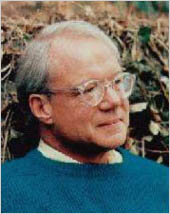| Home | |||||||||
|
|||||||||
| A
Word From M. Scott Peck, M.D. Author of "The Road Less Traveled" |
||||||||
In 1981 I began to be invited to conduct workshops on "spiritual growth". It immediately became obvious that such workshops could be significantly effective only when they were highly experimental. Mostly by luck, I was able to discern a few guidelines for leading these groups of up to sixty through the stages I came to call "pseudo-community", "chaos", and "emptiness" into a genuine, albeit temporary, community. It was a powerful process, and a number of the participants did seem to achieve a modicum of "spiritual growth". Almost from the beginning, however, my primary personal passion was not for the resulting individual gains involved but for the group as a whole, it was for community. When Lily and I met with nine others in December 1984 to first establish FCE, we had no more of a coherent vision than simply that "community is a good thing". We wanted to see that it was spread, and we correctly assumed that well selected women and men could be quite quickly trained to do so. Over the next eight years the facilitators, and other leaders of FCE succeeded in elaborating the initial few guidelines for community building into a complex system of interlocking, often paradoxical, rules, norms or principles for healthy group behavior. An interlocking system of norms governing group behavior is essentially the definition of culture. By 1991 it had begun to dawn on me that what we call community is a very particular- and particularly healthy- culture. It also happens to be a culture that many people from virtually all more "traditional" cultures - women and men, rich or poor, of every race, nationality and religion - can and do "buy into". When I retired from its Board of Directors in late 1993, FCE leaders - often with great initiative, imagination and courage - had led groups successfully into community not only throughout the English speaking world but even in foreign speaking countries using translators, and even in situations of severe pre-existing conflict. Since then the list grows almost monthly: Taiwan, Hong Kong, South Africa, Russia, Pakistan, Sri Lanka, and on and on. I believe what FCE most radically is about is forging the outlines of a new, planetary culture - a culture of genuine civility as opposed to the pseudo-civility of traditional diplomacy. But such gains are not unique to FCE. What is most unique about, I believe, FCE is its almost daily experimental work of supra-national culture building - whether that work is accomplished in Des Moines and Duluth or Moscow and Taipei. |
||||||||
| top | |
|
|
